Is call-out culture killing comedy?
In the age of outrage, even comedians are stumbling on cultural tripwires.
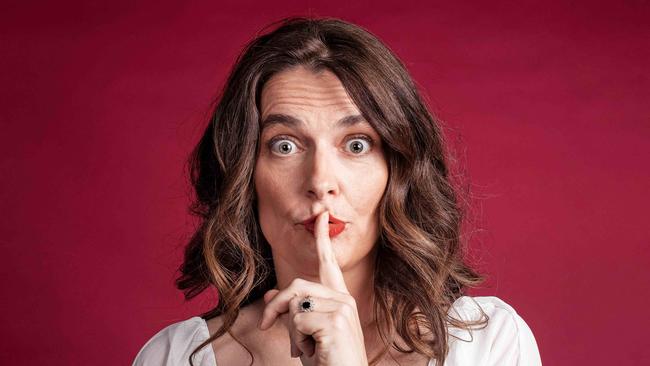
Kate Hanley Corley was 38 when she abandoned her career as a television scriptwriter to become a comedian, inspired to write her first show by a newspaper article about an Australian woman who trained to become a geisha in Japan. The comic potential of that story struck a chord with Corley, who had visited Japan many times and loved the country, but whose 1.8m frame made her feel like an oversized heifer whenever she took to the streets. Thus did she come to write Memoirs of a n Aisha, a musical comedy about a Gippsland dairy farmer named Aisha Ronan who flies to Japan to become a geisha and win back her boyfriend Craig, who has fallen for a Tokyo girl while on tour in Japan with the Nar Nar Goon footy club.
The show debuted at the Melbourne Fringe Festival in 2012, complete with songs co-written by Emma Hart and Libby Sherring, who sang backup vocals as the Dairy Chicks while dressed in full geisha. Corley played 10 characters, including the brutally strict Japanese dance teacher Mrs Oketobashi. In 2013 she reprised the show at the Melbourne International Comedy Festival, earning complimentary reviews from Aussie Theatre and Stage Whispers, which described it as an amusing amalgam of “footy, Geisha training, toilet humour [and] country and western music”.
“The show is ridiculous,” says Corley, “because a lot of comedy is ridiculous. But it also has a personal element because it’s based on my experience in Japan, of being a woman who’s not perceived as feminine. The character thinks she is being mysterious and delicate, when she’s actually a clod-hopping dairy farmer from Koo Wee Rup.” In 2015 Corley mothballed the show after failing to get more funding, but earlier this year she rewrote it for the 2019 Melbourne Fringe Festival, renaming it Aisha The Aussie Geisha. She booked a venue, registered with the festival organisers and sent them a synopsis and promotional photo of herself grinning zanily in geisha make-up, an image that duly appeared in the Fringe Festival program published in mid-August.
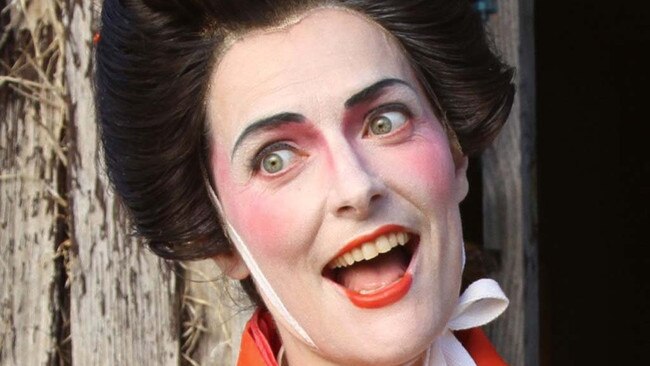
Then all hell broke loose. On August 19, the editors of Liminal – an online magazine of “Asian-Australian excellence” – denounced Corley and the Fringe Festival on Twitter, describing Aisha The Aussie Geisha as racist and disgusting “yellowface”. No one from the magazine had actually seen the show, but Liminal surmised that it “actively taps into racial hate”. The magazine’s tweets spread rapidly, and by the following morning an online boycott campaign was being spearheaded by Tom Tanuki, a social activist comedian who was booked to appear at the festival as part of the performance group Yelling At Racist Dogs. On his Facebook page, Tanuki shared a two-minute promotional video of Aisha from 2012 and declared his intention to have Corley blackballed from the festival because her “super racist” show belittled and mocked Asian people. “I’m cancelling this dickhead,” he announced. “I don’t cancel often, but when I do, I cancel hard. F..k you to hell, Kate!”
As Tanuki’s Facebook followers piled on to attack Corley, the Melbourne Fringe Festival was inundated with demands for Aisha The Aussie Geisha to be pulled. An old review of the 2012 show surfaced with the name Mrs Oketobashi misspelled as “Mrs Okaytobashme”, prompting the false accusation that Corley had joked about domestic violence. More than 70 Asian-Australian artists and writers denounced this “violent pun” in an open letter on Liminal, describing Aisha The Aussie Geisha as racist, dangerous, irresponsible and an insidious contribution to “xenophobia, white supremacy and discrimination”. On social media, scores of people who had never seen the show described themselves as shocked, appalled or disgusted by it.
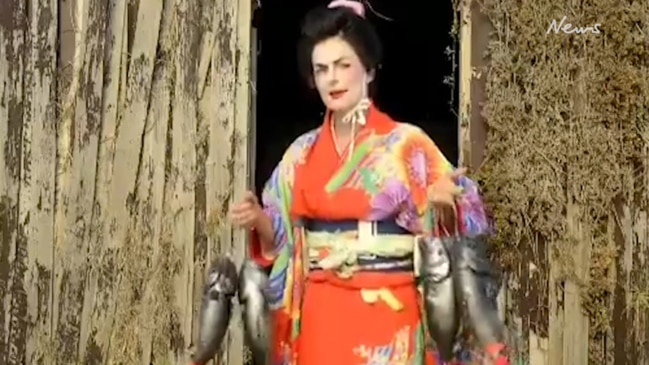
At home in Melbourne, Corley was puzzled when angry messages first began appearing on her Aisha Facebook page, until a call from the Fringe Festival alerted her to the blossoming drama. For the next 24 hours she watched herself being character-assassinated in real time across social media. “It just kept getting more and more and more extreme,” she recalls. “It was like being bashed – not physically, obviously, but metaphorically. It’s a tsunami of hate, and it really opened my eyes to the power of the online mob.” Among those calling for the show’s cancellation were Douglas Slaweski-Horton, a former artistic director of Chamber Made Opera, and Richard Watts, an editor at ArtsHub. Poet Michelle Cahill described Aisha as deeply disturbing; writer Tom Cho accused the Fringe Festival of “upholding white supremacy”; someone even suggested that making light of the town name Nar Nar Goon was racist towards Aboriginal people.
For a brief moment Corley considered mounting her own reasoned rebuttal – that Aisha was an absurdist romp that lampooned white hetero Australia, not the Japanese; that those attacking her were completely misreading a show none of them had actually seen. But the ferocity of the abuse dissuaded her, and the management of Melbourne Fringe Festival – an event that “embraces risk” and “supports anyone to participate” – soon began suggesting she cancel.
“They were calling me on the hour, and at that point I just decided there was no encouragement to keep going,” she recalls. Within 48 hours of that first protest tweet Corley was forced to announce her withdrawal, while insisting her show “does not in any way denigrate Japanese culture – a culture I have always loved and been fascinated by”. Meanwhile, the Fringe Festival’s creative director, Simon Abrahams, threw her under a bus by releasing an apologetic statement that repudiated Aisha as an error of judgment and promised a review of policies to ensure future festivals are “safe cultural spaces”.
All of which left Corley pondering just how much the world has changed in seven years, and where comedy sits in an era of hyper-aroused identity politics and social media mobbing. “This show started as a parody of the Hollywood film Memoirs of a Geisha and the discomfort some western women can feel in a very feminine culture like Japan,” she says. “But people attacking it couldn’t have known about those layers of irony because they hadn’t seen it. What struck me is that a lot of them didn’t seem to understand the role of comedy to explore those kinds of ideas. Have attitudes changed that much? Or has social media just created a forum for the angriest people to have the loudest voices?”
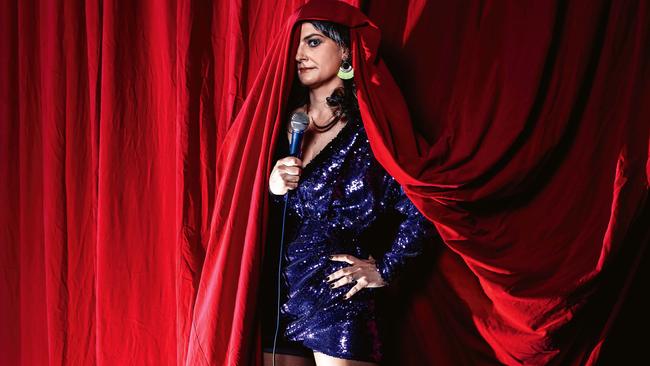
Five years ago, US comedian Chris Rock revealed that he no longer performs at US colleges because their audiences are too easily offended, an admission that sparked a still-running debate about whether political correctness is killing comedy. British comedian Ricky Gervais has done his best to answer that question by cracking jokes about cot death and repeatedly baiting transgender people on his Netflix shows, a one-man campaign to defy the taboos of the mainstream media. Australian comedian Jim Jefferies became a star in the US on the back of a stand-up routine that included hair-curling jokes about rape and paedophilia.
But if political correctness isn’t killing comedy, it’s certainly making it more complicated. Consider that in the very month Corley was being pilloried for dressing up as a geisha, Egyptian-Australian comedians Theo and Nathan Saidden were packing out theatres on their Superwog tour, a cavalcade of racial stereotypes that has earned them a million fans on YouTube and an ABC comedy series.
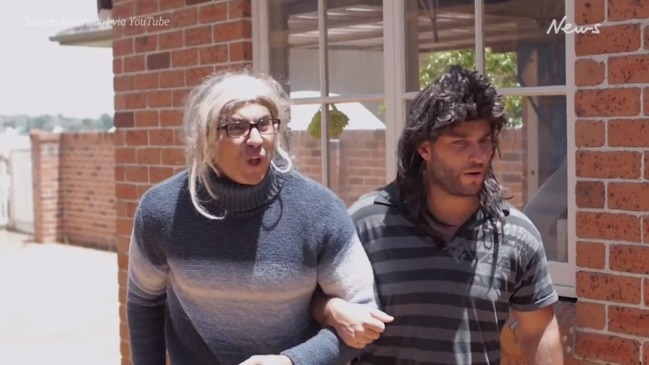
Meanwhile, Asian-Australian comic Diana Nguyen was donning a coolie hat and tunic to play the role of a harridan Vietnamese tiger-mother in the latest season of the Seven Network’s Fat Pizza, a TV series that has lampooned Lebanese homeboys and sundry other minorities for nearly two decades. In Melbourne, Italian-Australian comedy trio Sooshi Mango were gearing up for their national tour, Fifty Shades of Ethnic, a two-hour extravaganza of hysterical Italian mamas and shifty tax-dodging Greeks, which they promoted by releasing a music video of their heartfelt ballad I Love Salami.
Of course, these comedians are operating from inside the cultures they’re parodying, and often playing to audiences who are in on the joke. Diana Nguyen says the Vietnamese mother she plays in Fat Pizza and on her YouTube series Phi and Me – a fearsome suburban matriarch who keeps a rack of corporal-punishment tools in her pantry – is not so much a caricature as modelled on real life. “I can say this: my mother does wear that hat around the house,” says Nguyen, whose web series is part of a new generation of comedy shows that riff on the ethnic chaos of Australian suburbia. Writer Benjamin Law parlayed his Chinese-Australian childhood into a book and three seasons of The Family Law on SBS Television, and the Nine Network scored a hit with Here Come the Habibs, which imagined a family of Lebanese-Australian westies winning the lottery and moving to Sydney’s toniest white neighbourhood. Even the original “wogboy” Nick Giannopoulos – whose Wogs Out of Work, Wog-A-Rama and Wog Story pioneered the genre – was back on the road last year with Star Wogs – The Ethnics Strike Back.
The laughter these shows provoke is a safety valve that Australians – wog and otherwise – have long appreciated. The new Fat Pizza series opens with its “chocko” hero, Pauly Falzoni – played by the show’s creator, Paul Fenech – besieged in his pizza shop by a multicultural mob, including a gang of African louts who mistakenly think he’s mocking them and a Muslim refugee enraged by the bacon on his pizza. “It’s not easy to run a pizza shop in this area,” Pauly muses. “There’s a lot of oversensitive stooges who are cultural.”
Fenech has made a career of testing the limits of SBS’s multicultural audience – his series Housos featured a cast of potty-mouthed, disability-faking welfare scammers – but he says he can’t recall a complaint that ever created serious blowback. Housos did cop some flak when fans on its Facebook page posted death threats against prime minister Julia Gillard, but as Fenech cheerily points out: “We attack everybody equally.” Here Come the Habibs was criticised before its release by some Arab-Australian commentators, but the show scored an average 1.8 million viewers per episode and was renewed for a second season. Its creators, Rob Shehadie and Tahir Bilgic – who got their break on Fat Pizza – went on to create the multi-ethnic comedy Street Smart.
Life isn’t quite so straightforward for the Anglo comedian who ventures into multicultural mockery, as Chris Lilley discovered. When he “browned up” to play Tongan teenager Jonah Takalua in his 2007 series Summer Heights High, he got away with the conceit largely because the mimicry and the scripts were so sharp. But when Lilley adopted blackface to play Los Angeles rapper S.mouse in his Angry Boys series four years later, the lameness of the parody sparked a backlash. By the time Jonah appeared in his own series, Jonah From Tonga, it was 2017 and the cultural winds had shifted; the show was slammed by the Tongan community, dropped by Maori television in New Zealand and rated poorly.
Last year the comedy writers Jonathan Biggins and Drew Forsythe were called to a meeting with management at Sydney Theatre Company during rehearsals for the new season of their long-running satirical show The Wharf Revue. The revue was to feature a skit in which US President Donald Trump seeks tips from North Korea’s Kim Jong-un and China’s Xi Jinping about how to become a “leader for life”, but the STC insisted that the skit could not be staged unless Asian actors played the Asian leaders, a new policy at the theatre. “They said they had been listening to ‘voices in the community’,” recalls Biggins. The four actors on the revue were all white, and Biggins and Forsythe pointed out that they had mercilessly parodied all manner of leaders from Angela Merkel to Aung San Suu Kyi for years without audiences being offended. “We argued that it’s not about race – we’re playing the most powerful political leader in the world and a homicidal lunatic who’s building nuclear weapons. We’re not making fun of them because they’re Asian, we’re simply putting on a black wig and speaking in slightly accented English, as we do with every other character.”
But STC management was adamant, and the skit had to be hastily rewritten with Syria’s Bashar al-Assad replacing the Asians – which left Biggins and Forsythe puzzled that Middle Eastern characters do not trigger the same sensitivities. Earlier that year, Biggins’ stage comedy Australia Day had been pulled from a theatre in Albury after indigenous activists threatened to disrupt it, arguing that a play about Australia Day was offensive to them. The play has no indigenous characters – it’s a satire about the petty politics of municipal Australia Day celebrations – but one protester told the ABC: “I’m not going to put up with things like this happening, even if it’s a satire.”
“I think it’s very dangerous when people start saying, ‘You’re not allowed to do this because it doesn’t coincide with what we even think it might be about’,” remarks Biggins. “That, to me, is moving into the territory of the Cultural Revolution. Cancelling culture – what’s the difference between that and erasing people from history?”
This year the Wharf Revue complied with the STC rules by hiring Asian-Australian actress Lena Cruz to play Kim Jong-un in a skit that featured white actors playing North Korean army generals who talk in upper-class English accents in order to maintain “socio-cultural acceptability”. “What about me?” Cruz quips on the show. “I’m not even Korean – I’m from the f..king Philippines!”
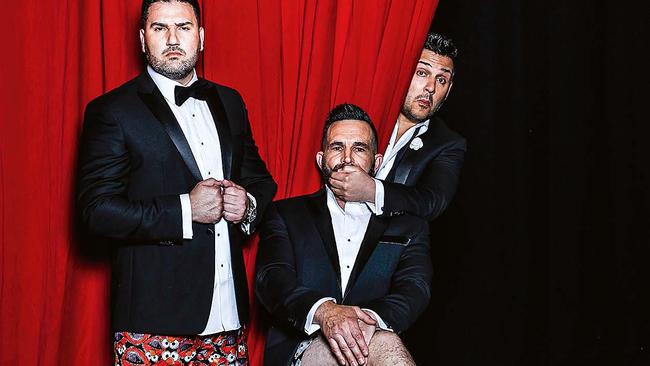
Three hours before showtime at Thebarton Theatre in Adelaide, the Sooshi Mango comedy trio are onstage rehearsing their Greek-Australian version of Bohemian Rhapsody, as sung by the apron-wearing proprietors of the Kalamata Fish ’n’ Chips shop. Clambering down from the stage, Joe Salanitri takes a seat in the stalls to watch his younger brother Carlo and fellow idiot Andrew Manfre running through the climactic scene in which they blow up their shop in order to avoid a health inspection (“He’s just a poor man from a poor family/Hiding from the government his 12 proper-tees!”). Tonight there’ll be a packed house of 1800 people for this, the third venue on the Fifty Shades of Ethnic tour – the biggest crowd since Joe Salanitri launched the trio’s accidental career four years ago by posting videos of his improvised Italian-Australian rants on Facebook. “It’s still a little surreal,” the 42-year-old says of his new career as a comedian after 20 years as a wedding singer and MC. “See, I’ve wanted to do this since I first saw The Wog Boy and Acropolis Now.”
The Sooshi Mango boys were high school clowns together at Salesian College in suburban Melbourne back in the 1990s, their midlife comedy career taking off not long after the three of them – along with friend Michael Kambouridis – started filming skits in Salanitri’s car. In late 2015 they donned tracksuits and reverse baseball caps to record Greeks vs Italians, a three-minute riff on inter-ethnic rivalry, which they posted to Facebook one Thursday afternoon in November. By Sunday, more than a million people around the world had viewed it. By 2017, they were donning grey wigs and cardigans to play the Ethnic Dads – cranky old immigrant nonis who sit around mangling English syntax and berating the younger generation (“When I was’a your age I was’a work 10 days in one week!”) When Nick Giannopoulos invited them on his Wogs At Work tour, it was the ethnic comedy equivalent of being blessed by the Pope. Their first show was at Melbourne’s Athenaeum Theatre in August 2017. “How can I say it? We were shitting ourselves,” admits Manfre.
Kambouridis has since dropped out, in part because Sooshi Mango developed from amateur goofing to actual showbusiness at such lightning speed, a testament to the power of social media and the appeal of culture-clash comedy. Fifty Shades of Ethnic, their first headlining tour, is three Italian-Australians parodying not just their own culture but the Greeks and Lebanese, all of whom flock to their show to revel in the communal détente of wog humour. The show also attracts quite a few Asian and Indian fans, although that’s a line not to be crossed onstage. “I can’t dress up as an Asian or Indian, go out and do that in character,” says Carlo Salanitri, mulling over the limits of ethnic parody while sitting in the dressing room before the show. “As soon as you do that, people take it as racist. There’s a lot more things that offend people these days. There are more lines.”
“I wouldn’t mind crossing the line a few times,” admits Manfre. “I think comedy is supposed to be the last [remaining] place where you can say what you want.”
In June last year, Optus Sport invited the Ethnic Dads onto the set of its World Cup soccer coverage, where they made off-colour jokes about balls while dressed in fat-suits, wigs and expanda-pants. Optus quickly removed the segment from its Twitter feed after viewers, many of them non-wog Millennials, decried it as racist. It was a lesson in how context is everything with comedy. “How did three guys who are Italian, acting as their dads, get accused of being racists?” Joe Salanitri asks rhetorically. “I think part of the problem was that it wasn’t set up properly. There was no lead-in explaining that we were comedians and this was our act.”
At Thebarton Theatre there’s no such confusion – everyone knows they’re here for two hours of jokes about tax-dodging Greeks, Italian nonis slaughtering pigs in their sheds to make salami and gossiping Italian mothers. A couple of people look aghast at the mention of a Chinese character called Foot Long Kok but the crowd goes wild for the closing number, which more or less sums up the Sooshi Mango aesthetic: We’re shifty! We’re hairy! We’re who we’re meant to be… We’re ethnic!!
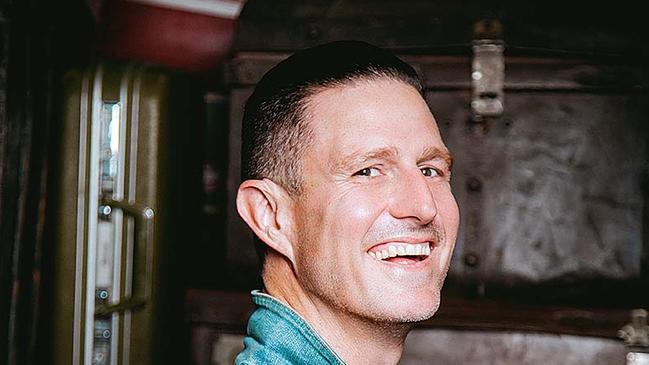
Last month, Wil Anderson became the latest comedian to misunderstand the rules of engagement in modern comedy when he cracked a joke about a robot on the ABC’s Gruen. Anderson and his panel of ad gurus were discussing an Instagram influencer known as Miquela Sousa, an animated character that features in Samsung commercials and claims to be a sentient robot from California. Miquela is not a real robot, Anderson noted, just a computer-generated avatar. “But she identifies as a robot,” he quipped, “so I will use the term that she prefers.” That joke got a big laugh from the studio audience but not from Ben Chadwick, a Melbourne information specialist. “I was sad to hear vulnerable trans people’s identity being mocked on @gruen_transfer,” Chadwick tweeted, noting that Anderson’s joke had been televised on International Pronouns Day, a celebration of gender-neutral language and people’s intersecting identities. The comedian responded immediately, saying his “lighthearted poke” was aimed at the pedantic tendencies of the ABC audience, not transgender people. But then Lucy Santos Green, an academic from South Carolina and the mother of a transgender child, came online to criticise Anderson for “mocking trans individuals”.
Twenty minutes after the discussion began, Anderson was apologising for any hurt he’d caused and promising to be more careful. “Words matter,” he wrote, “so if in this case mine have come across other than how I intended, that is my issue and it is something that I will take seriously and not dismiss. I appreciate your feedback on this and will do better.” It was 7.45am on a Friday morning; when ABC released the “extended” version of Gruen on its catch-up service iview later the same day, the offending joke had been excised.
Anderson declined to talk to this magazine about his public mea culpa, a vivid example of the instant blowback comedians now face when they trigger hidden cultural tripwires. “Comedians who use social media now see themselves criticised instantly and directly,” notes one veteran television comedy producer. “It didn’t matter as much when it was just letters to the editor; now they’re seeing it an hour after it’s gone to air and directly on their Twitter feed. And it’s the white comedians who are more worried about it. They’re the ones getting the backlash.”
As Anderson discovered, the blowback these days comes increasingly from activists on the “woke” Left who are hyper-alert to issues of race, gender or disability, putting many comics in the bind of arguing with people who claim a special vulnerability. When indigenous activists shut down Jonathan Biggins’ play Australia Day merely because they didn’t like its title, he was reluctant to push back hard because he knew the issue was acutely sensitive to them, and he had no desire to engage in a dispute that provided fodder for right-wing politicians and commentators. “It’s an interesting time we’re living in,” he deadpans.
In a new YouTube webcast called Crossing The Line, Indian-Australian comedian Neel Kolhatkar subjects a studio audience to grossly offensive jokes about Jews, Christians, gays and other special-interest groups, videotaping their reactions. In one episode, a white comedian in a flannelette shirt delivers a series of anti-Muslim gags that hit every taboo from cliterodectomy to suicide vests. In the audience, a bespectacled gay millennial sits stony-faced through the whole routine, and an earnest 42-year-old Christian pastor worries about the devastating effect such jokes can have on vulnerable people. By contrast, a 19-year-old student named Adam almost bursts a gasket laughing at the cliterodectomy joke, and a 24-year-old journalist named Sahar thinks the jokes “could’ve tried harder to be a bit more offensive”. Both of them are Muslims.
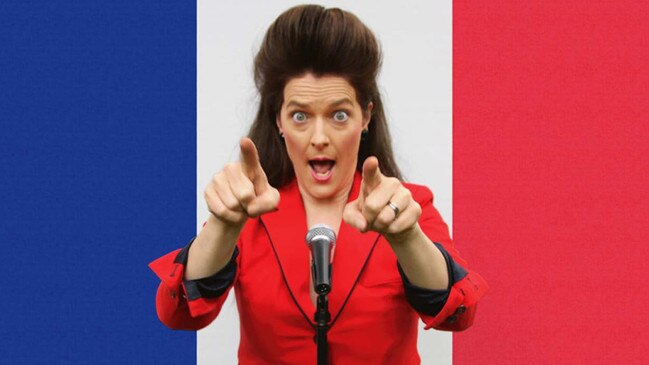
The day after Aisha The Aussie Geisha was cancelled at Melbourne Fringe Festival, activist Tom Tanuki exulted in his victory on Facebook, denigrating Kate Hanley Corley and boasting: “I had a great time the whole way.” Some of Tanuki’s followers weren’t so sanguine, pushing back against his crusade to blackball a fellow comedian whose play he hadn’t actually seen. “Should this genre of art be censored because it’s caused a degree of ‘outrage’??” asked one. “Because if that’s the case, what’s stopping all those that are outraged by your views censoring you[?]” On the websites of The Age and SBS, much of the commentary had swung Corley’s way.
Melbourne Fringe Festival’s creative director Simon Abrahams refused to talk to this magazine about the affair, and Liminal, which started the boycott, ignored repeated requests for comment. Liminal’s editor-in-chief, Leah Jing McIntosh, is a Cultural Studies student at Melbourne University and a 2019 nominee for Young Australian of the Year. The latest issue of the magazine, which receives funding from the Australia Council, features the genderqueer drag-collaborative artist Gabby Loo discussing her struggles with “the facade of professionalism in White spaces” and the “capitalist faux-empowerment dream”.
Corley was left several thousand dollars in the hole after the abrupt cancellation of her show, not to mention psychologically bruised by the viciousness of the abuse directed at her on social media. “I’ll be completely honest,” she says, “I did really question: ‘Is this racist?’ I was appalled to think I had done something wrong, and for a couple of weeks I really soul-searched. But anyone who knows me knows I am so far from being a racist. I’ve travelled to Japan eight or nine times; I love the culture. The show was a celebration of difference and the humour that can found when cultures interact, which has absolutely no foundation in racism.”
Corley still has plenty of work ahead of her – she does regular stand-up, she’s scheduled to perform a one-woman show at next year’s Melbourne International Comedy Festival, and she regularly performs as Fanny Bouffante, a pretentious right-wing French woman. That character really is a cultural caricature but no one has ever objected to it, and Corley has been interviewed on several French websites, which got the joke. She says it’s unlikely she would ever try to stage Aisha The Aussie Geisha at another festival, but remains hopeful the show can be revived, which might be an opportunity for the people who attacked it to actually see it.
“If someone is going to be brazen enough to label me a racist and call for my show to be cancelled, I’d like them to come and see it before they mount their argument,” she says. “Perhaps then we could have a discussion about it. And for people who think they’ll be offended, there’s always the option of not coming.”


To join the conversation, please log in. Don't have an account? Register
Join the conversation, you are commenting as Logout